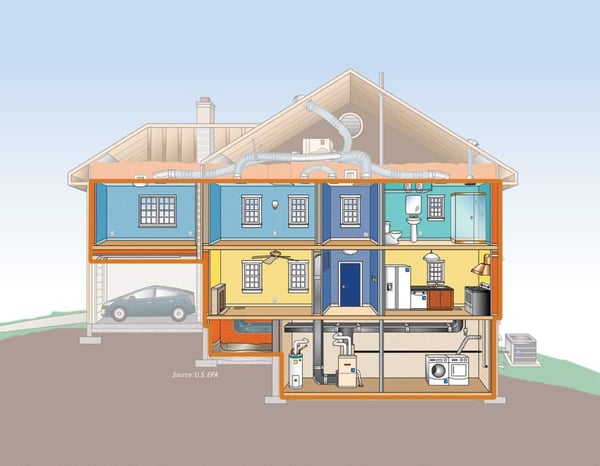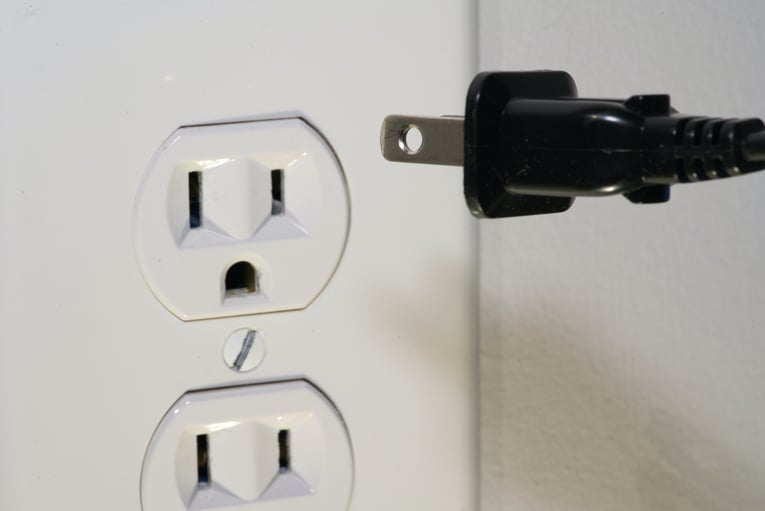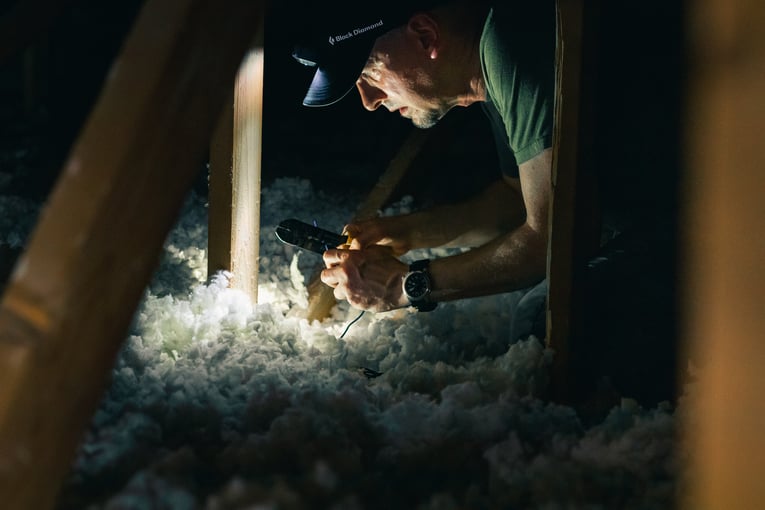How An Energy-Efficient New Home Can Save You Money
Triple-digit Texas temperatures often bring one thing to mind: energy efficiency.
While important year-round, energy efficiency commands special attention in our homes during the hottest and coldest months – especially during sweltering Texas summers.
At John Houston Custom Homes, we understand how important energy efficiency is. Through strategic building material selections and progressive construction processes, we consistently ensure that our homes are equipped with energy-efficient features such as Low-E windows, radiant barrier, 15 seer HVAC, R44 attic insulation, programmable thermostats, sprinkler system rain sensors, and much more.
While it is certainly possible to upgrade older homes with energy-efficient features, newer homes typically offer built-in efficiency right from the start.
What makes John Houston Custom Homes such a leader in new home energy efficiency?
“John Houston Custom Homes continues to promote energy efficiency and build a quality product. With improved HVAC efficiencies and designs, high-performance Low-E Windows, quality insulation and air sealing, they set themselves apart from their competition. They have brought on Ei Companies as an additional consultant to their team to help assure their homes are meeting a stringent set of standards for high-performance homes. Each of their homes are inspected and verified to meet their stringent guidelines by a third party inspection and consulting firm, Ei Companies.”
-- Cody McGhie, regional vice president, Texas Division, Ei Corporation
Thankfully, today’s new homes are designed and built to meet higher efficiency standards than older homes, which translates into monthly and long-term savings for homebuyers.

According to the U.S. Department of Energy, optimizing home energy efficiency requires a whole-house systems approach to evaluate the variables, details, and activities that impact energy use in your home.
Elements that should be considered include:
- Appliances and home electronics
- Insulation and air sealing
- Lighting and cooling
- Space heating and cooling
- Water heating
- Windows, doors, and skylights
How exactly can this attention to detail stretch your homebuying dollars further?
Not only will smart design and building practices help lower your gas and electric bills, but you could even be eligible for tax credits – and you’ll be helping the environment at the same time!
Here are some of the ways energy-efficient designs and materials will improve your bottom line:

Seals – If you’ve ever felt a little breeze coming through a tiny crack in a door frame, you can understand the importance of a home’s seal. In fact, leaky homes are a huge driver of energy waste and high energy bills. Today’s architects and homebuilders pay close attention to a home’s seal, or its building envelope.
“The building thermal envelope, which is comprised of your exterior walls, floors and ceiling, plays a crucial role in maintaining comfort,” said Cody McGhie, regional vice president, Texas Division, Ei Corporation. “With proper insulation and air sealing techniques, a home will retain heated or cooled air for a longer period of time.”
Common culprits of air leakage include windows, doors, baseboards, skylights, garages, and places where ducting, plumbing, or electrical wiring comes through the walls, floors, or ceilings.
At John Houston Custom homes, we strive to ensure airtight efficiency through proper caulking, weatherstripping, and insulation placement paired with adequate ventilation and moisture control.

Insulation – In a nutshell, insulation creates a thermal barrier to help heat stay out of your house in the summer and stay inside your house during the winter. Effectively insulating your walls and attic gives air fewer avenues to escape. Stabilizing your home’s internal temperature will help lower your heating and cooling bills and will ensure that your HVAC systems run as efficiently as possible. Additionally, good insulation acts as a sound barrier as well and reduces the level of exterior noises.
“Insulation is extremely important to have in a home,” said McGhie. “Its primary focus is the reduction of conductive heat transfer through the building envelope (keep heat in during the colder months and keep heat out during hotter months). Insulation’s performance is rated based on an R-Value, as well as the quality of installation. The R-Value is the resistance to heat transfer through the material; the higher the value, the more resistance it has, improving its performance. If installed correctly, you will get the full performance of the listed R-Value.”
He added that efficient insulation and sealing also reduces the amount of outdoor pollutants that might enter the home.

Low-E Windows – Low-emissivity, or Low-E, windows are one of the key reasons John Houston homes are so energy efficient. What exactly is emissivity? It is the ability of a material to radiate energy. Thus, Low-E coatings minimize the amount of ultraviolet and infrared light that can pass through glass without compromising the amount of visible light that is transmitted. In short, Low-E windows will boost your home’s energy efficiency and save you on heating and cooling costs.
“With Low-E Windows, you can feel the difference!” said McGhie. “These windows help prevent unwanted heat gain without limiting the view. Additionally, Low-E windows provide better UV protection and help prevent fading of your furniture and carpet.”
More Tips to Improve Home Energy Efficiency
Looking for more ways to enhance your home’s efficiency?
- Switch to LED light bulbs which use less energy than traditional light bulbs and last longer.
- Use natural light when possible and turn off lights not in use.
- Plant trees to increase shade on your home and property.
- Close your blinds during the day, especially during hot temperatures.
- Use your ceiling fan to give your air conditioner a little breather.
- Program your thermostat. According to the U.S. Department of Energy, you can save as much as 10% a year on heating and cooling by simply turning your thermostat back 7°-10°F for 8 hours a day from its normal setting.
- Consider adding solar screens to your windows to reduce solar heat gain, UV damage, and glare.
- Have a licensed HVAC contractor check your system annually to conduct an A/C tune-up to ensure optimal performance.
- Install low-flow showerheads and low-flow toilets which work much more efficiently.
- Maintain a clean air filter in HVAC equipment as this will allow for the proper airflow of the system.
- If the budget allows, consider adding insulation in the attic.
- Wash your clothes in cold water. The American Cleaning Institute reports that about 90% of the energy a washing machine uses goes towards heating the water. Using a cooler temperature can prolong the lifespan of your clothes while saving you money at the same time.
At John Houston Custom Homes, we pride ourselves on building homes that will not only elevate daily living to a luxurious level but will also leave a smaller footprint on the environment.
We would welcome the opportunity to share our energy-conscious building philosophy, extensive inventory of beautiful homes, and discuss how you can take advantage of our virtual homebuying process!
Contact an Online Sales Counselor today at 866.646.6008.



